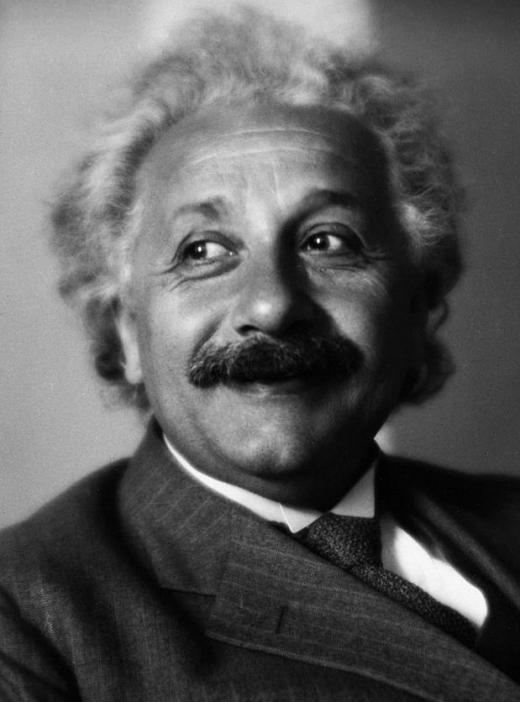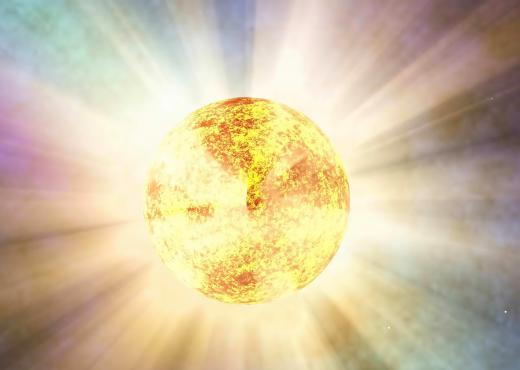What is Physics?
Physics applies scientific methodologies to understand the most fundamental principles of nature: matter and energy, and how they interact. A physicist usually specializes within one area of physics, though many disciplines overlap.
Astrophysics and cosmology are examples of sciences charged with unraveling the mysteries of life as they play out on a massive scale. From black holes to supernovas, it is the job of this branch to explain the birth of stars, the tumble of galaxies, and the beginning of the universe.

Geophysics deals with understanding the earth from the standpoints of electromagnetic, seismic, and radioactive phenomena. Plate tectonics, geology, atmospheric science, climatology, and oceanography are just a handful of the sciences that fall under the purview of this field. Thanks to this branch of physics, scientists have a better understanding of events like earthquakes, volcanic eruptions, the formation of mountains, and continental drift.

Atomic and Nuclear Physics, along with their various disciplines, undertake one of the most fundamental areas of nature — understanding the atom. Nuclear power, radioactivity, medical imaging systems, pacemakers, and the atomic clock are just a few benefits derived from these branches. Studying the atom also led directly to the emergence of quantum physics.

Quantum physics is perhaps the most fascinating branch of physics, as it reveals a world so foreign to the one most people know, it is all but unbelievable. The job of this field is to take scientists into the tiniest particles known to man, unlocking the most fundamental levels of matter and light. Here, quantum particles behave in counter-intuitive ways, as ready to travel backward in time as forward, or to appear simultaneously in two places at once. Quantum physics has contributed in unique and far-reaching ways to varied branches of science. It also led to a new theoretical understanding of particles and to what might be the Holy Grail of science: The Theory Of Everything.

Theoretical physics rides the forefront of pioneering hypotheses for unsolved questions in all areas of physics. In some circles, theoretical physics is not well received, because the theories are unproven, and there are often no tools to do so for decades, if ever in the scientist’s lifetime. However, circumstantial support and mathematical consistency led to a breakthrough in superstring theory that might be the so-called Theory of Everything. This theory would unite Einstein’s Theory of Relativity with the quantum world, explaining the relationships between the four known forces: gravity, the strong and weak nuclear forces, and electromagnetism. While mathematical consistency is on the side of superstring’s M-theory, there is currently no way to conclusively test it.
The best science fiction writers are often physicists who use their knowledge of hard science to extrapolate a plausible future world. For anyone with a keen mind and a sense of wonder, the enigmatic world of physics can provide an excellent and rewarding career path.
AS FEATURED ON:
AS FEATURED ON:














Discussion Comments
In order to understand cosmology and astrophysics, you must first understand particle physics, which means you have to understand energy (in all it's forms), gravity and mass (what they really are). Who would have thunk that, eh?
I have come to believe that our greatest minds aren't that great. There seems to be a paradox playing out here. The more technologically advanced we become, the dumber we become (generally speaking). What a shame, because physics is the key to our salvation.
what is the mass energy relation?
@ Babalaas & Pixiedust- I noticed that you highlighted the importance of math in physics in your post. Physics and math, especially calculus, complement each other. It can actually help to learn physics and calculus together.
By learning these two subjects together, one can use the science to practice the math, and the math to prove the science.
Classical mechanics and Electromagnetism are based on calculations made using integral and differential calculus. Einstein used differential calculus to express his theory of relativity. Sir Isaac Newton even used calculus to explain the laws of gravity and motion.
Calculus studies how things change, while physics establishes the laws that allow changes to happen. The interrelationship these two disciplines share arguably create the foundation for modern sciences. Mastery of these two subjects will give a person great insight into the origins of our universe.
I would consider myself an amateur student of physics, not quite a novice, but still learning about the different branches of physics. Physics fascinates me. In my opinion, the most fascinating physical phenomenon is gravity.
I am amazed at the power gravity has on the universe. Gravity Keeps the sun and the planets round, affects acceleration and trajectories, and has profound effects on biological organisms.
I am currently reading a book on this subject called "Gravity from the Ground Up", written by Bernard Schultz. Schultz is one of the founding directors of the Albert Einstein Institute at the Max Planck Society in Germany.
The book is long, but very interesting. Schultz gives a detailed overview of gravity and general relativity for both novices and advanced physicists. Each section contains text inserts that give formulas and mathematics problems that you can use to prove many of the laws and theories. It is a good read if you enjoy physics.
Classical mechanics is another branch of physics. It deals with the laws of motion, including Newton's laws of motion. It covers statics, kinematics, dynamics, solid mechanics and liquid mechanics.
Post your comments